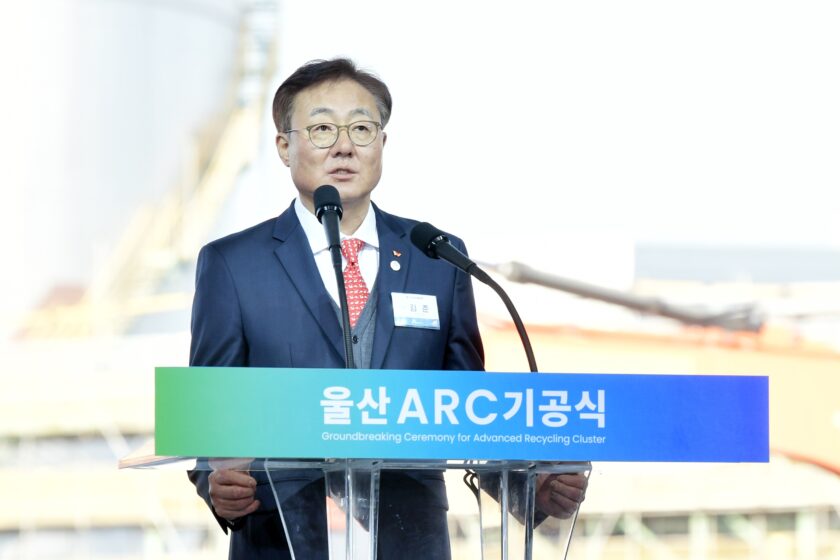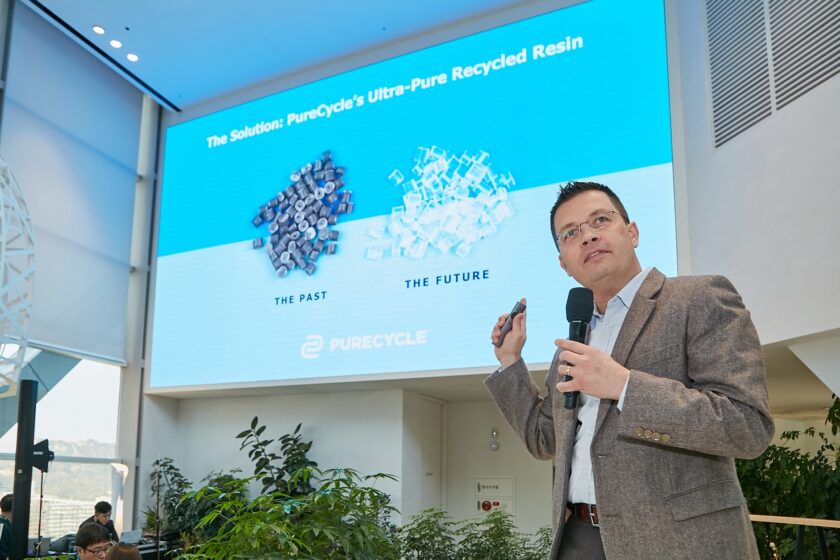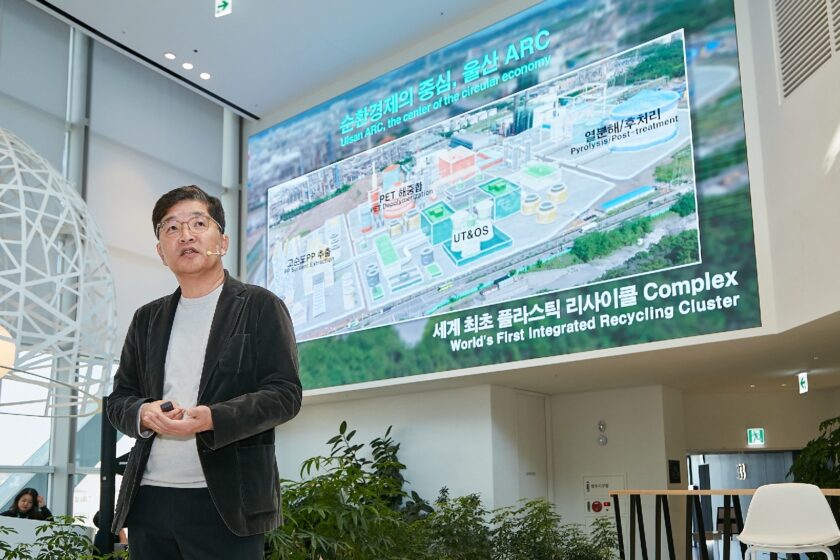- Advanced Recycling Cluster in Ulsan will combine three recycling technologies in one site for first time to advance circular economy for plastics
- A total of 1.8 trillion won ($1.4 billion USD) to be invested in 215,00 square meters of land – the size of 22 soccer fields
- SK Geo Centric plans to build additional global recycling sites as part of SK Group’s broader effort to reduce its impact on the environment
SK Geo Centric is a subsidiary of SK Innovation, South Korea’s largest energy company, and part of SK Group, South Korea’s second-largest conglomerate. SK Geo Centric’s expansion into recycling is part of SK Group’s broader effort across all of its companies to reduce their impact on the environment and help address global climate change.


Executives from the corporate partners for Ulsan ARC held a press conference Tuesday, November 14, at the SK Green Campus in Seoul to discuss the project a day before marking the start of construction.
Once the Ulsan ARC starts operating, 320,000 metric tons of waste plastic can be turned into new resources every year. In terms of scale, the mass of the plastic in the Great Pacific Garbage Patch was estimated to be approximately 80,000 metric tons, and that amount of trash can be processed in 3 months through ARC facilities.
Moreover, Ulsan ARC has the capability to process 9% of waste plastic incinerated or buried each year in South Korea and 60% of that nation’s annual consumption of PET water bottles and plastic cups.
Blueprint for helping solve global waste issue and future of chemical industry
SK Geo Centric’s Ulsan ARC project is designed to provide a blueprint for helping solve the global garbage issue and serve as a model for future projects. Ulsan ARC will be the first major recycling site in the world to implement three advanced recycling technologies – pyrolysis, high purity polypropylene (PP) extraction and depolymerization.
The complex is intended to help create a circular economy – a system that continues to circulate and use plastic resources beyond the existing model of discarding plastic products.
The site will be able to create raw plastic materials from a wide range of discarded plastics, such as take-out containers, bottles, automotive parts and certain plastic-based textiles. It will even be able to turn some plastics, such as vinyl and other composite plastics, into chemical materials that can be used as a substitute for crude oil.
Executives for SK Geo Centric and partner companies commented on the importance of Ulsan Advanced Recycling Cluster.
SK Geo Centric CEO Kyung-soo Na
“We will use the time when the crisis in the petrochemical industry is mentioned as a blessing in disguise,” said Kyung-soo Na, CEO of SK Geo Centric. “We will apply the latest technologies to reinvent plastics, make waste plastic a new resource…We are already pre-selling recycled products to leading overseas companies including Amcor, a global packaging company, even before the completion of the plant.”
Loop Industries CEO Daniel Solomita
“Loop is proud to partner with SK Geo Centric and be an integral part of its ARC complex in Ulsan,” said Loop Industries CEO Daniel Solomita. “The Loop branded resin sold from Ulsan will allow our global brand company partners to meet and, in some cases, exceed their stated sustainability targets for recycled content.”
PureCycle Technologies CEO Dustin Olson
“It’s always special to visit South Korea,” said PureCycle CEO Dustin Olson. “They are on the cutting edge when it comes to recycling technology and the ARC is evidence of that. The inclusion of PureCycle’s game-changing recycling process in the cluster will mean an expanded amount of plastics can be kept out of landfills and incinerators here in South Korea.”
Plastic Energy CEO Carlos Monreal
“Since Korea shows amazing leadership in the plastic circular economy, I think it is natural to be a priority among Asian countries,” said Plastic Energy CEO Carlos Monreal. “SK Geo Centric will become one of the strongest petrochemical companies in Asia and the global region in the future, focusing on the plastic recycling business, and Plastic Energy will continue further consultations, including the construction of a second pyrolysis plant in [South Korea’s] Dangjin region.”
Source: SK Group Newsroom, Link


Comments